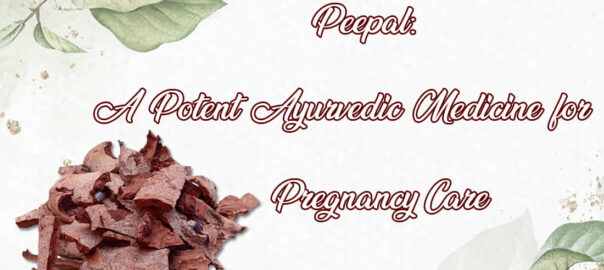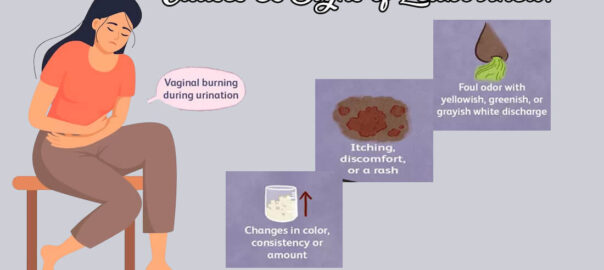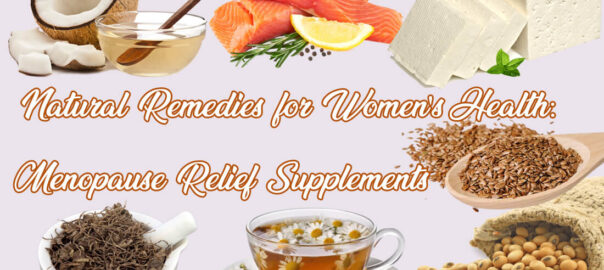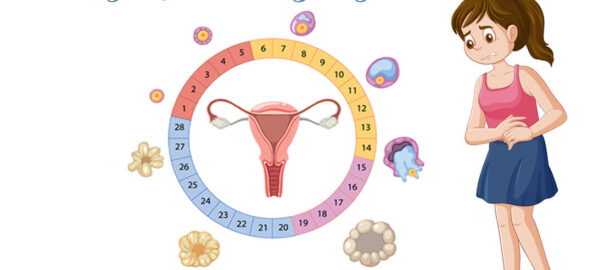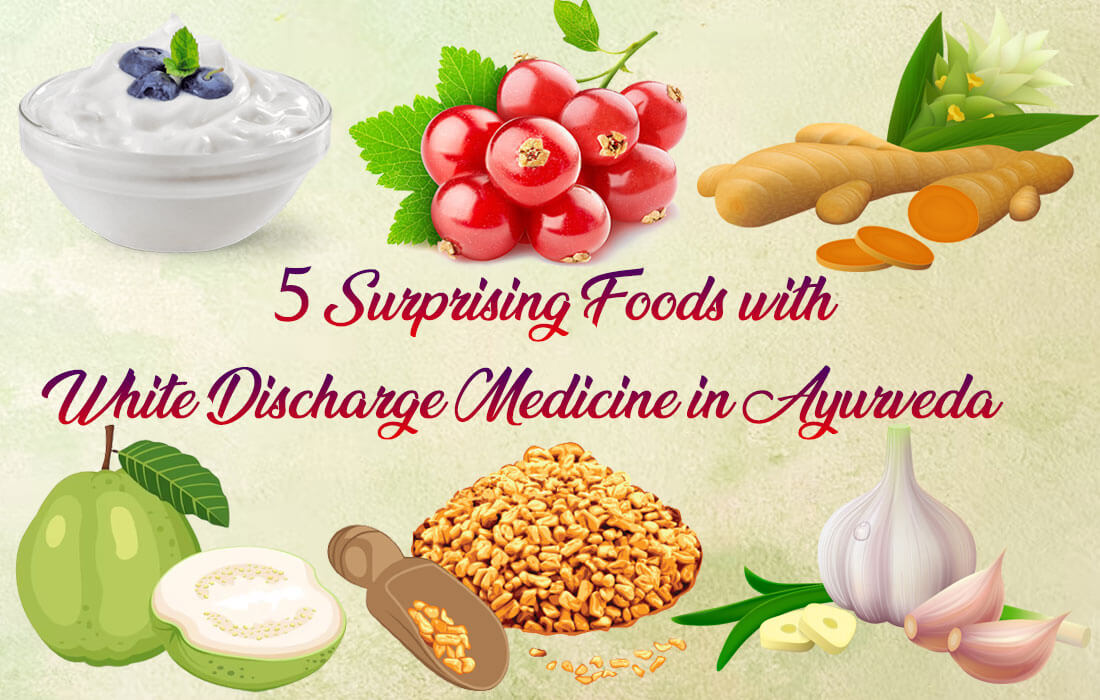
Vaginal white discharge, or leukorrhea, is a common concern among women. While it’s usually harmless and a part of the body’s natural cleaning process, excessive white discharge can be uncomfortable and embarrassing. Did you know that some surprising foods can help combat white discharge naturally? In this blog, we will explore five foods that are delicious and beneficial in managing vaginal white discharge. These natural remedies align with Ayurvedic principles and offer an effective white discharge medicine in Ayurveda.
Nutrient-rich Foods to Combat White Discharge
Maintaining a balanced and nutrient-rich diet can be highly beneficial in combating this condition. By consuming a diet rich in important vitamins, minerals, and nutrients, the body can maintain a healthy vaginal environment. Here are five foods that may have beneficial properties for maintaining vaginal health:
1. Yogurt
- Yogurt is often referred to as a superfood for vaginal health. It contains probiotics, specifically lactobacillus, which help maintain the balance of healthy bacteria in the vaginal area. This balance is crucial in preventing and managing white discharge. Incorporating yogurt into your daily diet can promote a healthy vaginal environment.
- Furthermore, yogurt is a versatile ingredient that can be enjoyed in various forms. You can have it as a snack, add it to smoothies, or use it as a base for delicious dressings and dips. Opt for plain, unsweetened yogurt for the best results, as added sugars can potentially disrupt the vaginal flora.
2. Fenugreek Seeds
- Fenugreek seeds, commonly used in Indian cuisine, are renowned for their numerous health benefits. They are rich in antioxidants, fibre, and phytonutrients that can help combat white discharge naturally. Fenugreek seeds are known to regulate hormonal imbalances, which can be a leading cause of excessive white discharge.
- To add fenugreek seeds to your diet, soak them overnight and consume them in the morning. They can also be added to curry stews or used to make a fragrant fenugreek tea.
3. Garlic
- Garlic is a flavorful addition to various dishes and a potent natural remedy for managing white discharge. It contains allicin, a compound with strong antimicrobial and antifungal properties. These properties help combat the infection that may cause vaginal discharge.
- To reap the benefits of garlic, consider incorporating it into your meals regularly. You can use it in stir-fries, pasta sauces, or as a base for salad dressings. Alternatively, you can consume a clove of raw garlic daily for immediate relief.
4. Turmeric
- Turmeric, the golden spice often associated with Indian cuisine, is a powerful anti-inflammatory and antioxidant agent. It has been used in Ayurveda for centuries to treat a wide range of ailments, including issues related to women’s health. Turmeric can alleviate vaginal discomfort caused by white discharge by reducing inflammation.
- To consider turmeric in your diet, add turmeric to your rice dishes. Another way to incorporate turmeric into your diet is to add a teaspoon of turmeric powder to warm milk, water, or smoothies. Additionally, turmeric paste can be applied topically for its soothing benefits.
5. Cranberries
- Cranberries are well-known for their role in preventing urinary tract infections (UTIs) due to their ability to inhibit the growth of harmful bacteria. While not a direct remedy for white discharge, cranberries can indirectly support vaginal health by preventing UTIs, sometimes leading to increased discharge.
- You can enjoy cranberries in the form of fresh fruit, dried berries, or unsweetened cranberry juice. Adding this cranberry fruit to your diet can help maintain a healthy urinary tract and lower the chances of infections that may increase white discharge.
6. Guava
- Guava is a tropical fruit abundant in vitamin C, which is well-known for its immune-boosting and infection-fighting properties. By maintaining vaginal health, vitamin C reduces the risk of infections and discharge.
- You can include guava in your diet by consuming it fresh, adding it to fruit salads, or blending it into smoothies. Additionally, the vitamin C content in guava can help to bolster your body’s natural defences against infections.
Incorporating a nutrient-rich diet can alleviate leucorrhoea. Drinking ample water and avoiding processed foods, caffeine, and alcohol help maintain vaginal health. Implementing these dietary changes with proper hygiene practices and vaginal discharge medicine can greatly improve the overall health and well-being of those experiencing leucorrhoea.
Maintain Vaginal Hygiene Practices
Reducing daily vaginal discharge, also known as leukorrhea, can be achieved through lifestyle changes, hygiene practices, and, in some cases, dietary adjustments. It’s important to note that some vaginal discharge is normal and even necessary for maintaining vaginal health. However, if you’re experiencing an excessive amount or changes in the consistency, colour, or odour of your discharge, here are some effective steps on how to reduce daily vaginal discharge:
Maintain Proper Hygiene:
- Gentle Cleansing: Wash your genital area with plain, warm water daily. Refrain from using harsh soaps, scented products, or douches, as they can disrupt the vagina’s natural pH balance and cause increased discharge.
Choose the Right Underwear:
- Cotton Underwear: Wear breathable cotton underwear that allows proper airflow to the vaginal area. Avoid tight-fitting, synthetic materials that can trap moisture and heat.
Maintain a Healthy Diet:
- Stay Hydrated: Make sure to drink adequate water to ensure your body stays hydrated. Proper hydration can help maintain healthy bodily functions, including producing vaginal discharge.
- Balanced Diet: Ensuring a diet rich in fruits and vegetables and minimizing the consumption of sugary and processed foods is crucial for preserving the body’s natural balance.
Manage Stress:
- Stress Reduction: Chronic stress can affect hormone levels, influencing vaginal discharge. Engage in stress-reduction techniques such as deep breathing, meditation, yoga, or regular exercise to help manage stress.
Practice Safe Sex:
- Use Condoms: If you’re sexually active, use condoms to prevent sexually transmitted infections (STIs). Certain STIs can cause changes in vaginal discharge.
Avoid Irritants:
- Fragrances and Dyes: Avoid using scented products, perfumes, or coloured toilet paper in the genital area, as they irritate the vagina and cause increased discharge.
Monitor Menstrual Hygiene:
- Proper Pad and Tampon Usage: Regularly change sanitary pads and tampons during your menstrual cycle to prevent bacterial overgrowth and odour. Use unscented menstrual products.
Stay Informed:
- Educate Yourself: Understanding your body and vaginal health is essential. Stay informed about normal variations in vaginal discharge and be aware of any changes that might indicate an issue.
Conclusion
Dealing with excessive vaginal white discharge can be discomforting, but it’s important to remember that it’s usually a natural and healthy bodily function. By incorporating foods like yogurt, fenugreek seeds, cranberries, guava, and turmeric into your daily meals, you can promote a healthier vaginal environment by balancing the vaginal flora, combating infections, and reducing inflammation and thus reducing white discharge naturally. Along with your balanced diet, vaginal white discharge medicine can also be an effective and sustainable way to manage this condition.
Remember, regular hygiene practices and regular exercise can also be crucial in managing and preventing excessive white discharge. Embracing a holistic approach to women’s health is the key to finding relief and long-term well-being.



